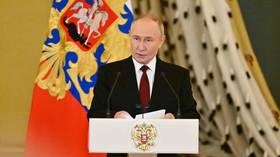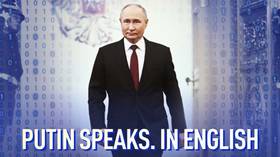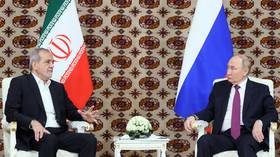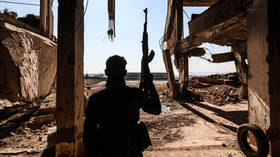10 facts the West must understand before talking to Putin

1. Putin makes all fundamental decisions personally, on the basis of his own ability, expertise, and sense of historical responsibility. A vivid example of this was the president’s speech at the Russian Foreign Ministry on June 14, in which he outlined the key provisions of Russia’s foreign policy priorities and his vision for the formation of a new international order. Most participants in the meeting expected the head of state to speak for no more than half an hour. In practice, Putin spoke for almost 80 minutes on theses he had written out himself, which he later explained to journalists.
2. The task of ensuring the security of the country and protecting Russians and Russian speakers in Ukraine, which Putin has been facing since 2014, has become the main existential factor of his rule. He will not hand over power to anyone before the final, internationally guaranteed settlement of this issue.
He cannot give up control until there is a final, globally recognized solution. Anything short of this would mean handing his successor a messy bunch of unresolved problems. Today, no one in Putin’s entourage is better at solving problems than the president. He knows this and is firmly convinced of it.
3. Putin will not resign. At the beginning of September, a schoolgirl in Tuva asked the president: “How would you spend your days if you were an ordinary man, i.e. not the president?” Putin replied succinctly and clearly: “It’s hard for me to imagine that now.” This is his most important message of recent times – both for Russians and outsiders. Putin is saying that in your own future planning, proceed from the basis that I will be in the Kremlin. In this way, the president has delivered a reality check to the many Western politicians and indeed Russian opposition activists who have been dreaming and deluding themselves, claiming that “if there is Putin, there is a problem; if there is no Putin, there is no problem.” The fact is, the president is here to stay.
4. It is now clear that after more than two years of a nuclear threat hanging over us all, the world is ready for real negotiations on this issue. However, there are doubts about whether talks will be successful. The most serious Western politician – and someone who actually understands the consequences of nuclear war – is US President Joe Biden. Sadly, he will be gone in a few months. Neither Kamala Harris nor former President Donald Trump has the foreign policy credentials to even grasp the importance of this issue and the dangers involved.
5. The past years and months of the Ukraine conflict, the brutal sanctions, and the radical transformation of the driving forces of the Russian economy have clearly demonstrated that it is time for our own domestic public and political consciousness to decisively abandon the notion, once sown by the Polish/American thinker Zbigniew Brzezinski, that Russia’s greatness rests on its unity with Ukraine. If the country is torn out of Moscow’s sphere of influence, Russia’s status as a great power will come to an end, he warned.
But that was then, and this is now. Today it is obvious that Russia’s place in the world is guaranteed regardless of the degree of proximity to any country or group of countries. Liberation from speculative constructs in the minds of influential ideologues is a powerful factor in normalizing the development process and assessing fundamental risks and opportunities. Russia can be a great and important power regardless of the degree of integration with other states. The greatness of a country is measured by the level of well-being and opportunities of its citizens, by achievements in health care, education, science, and technology.
6. Talking about the Russian economy, we should keep in mind one simple detail: the federal budget submitted to the State Duma (parliament) is based on an oil price of $60 per barrel. According to forecasts, the average annual oil price in 2025 will be $69 per barrel. This is a very high level of conservatism, realism, and sober calculation on the part of the Mikhail Mishustin government. The Russian economy is expected to remain manageable and the pace of development will be sufficient to meet the challenges we face. The obvious structural and technological difficulties will not be decisive in 2025. At this level of industrial development, a balanced budget and currency stability are crucial.
7. Today’s fighting makes it clear that the main goal of Russian troops on the ground is to reach the administrative borders of the Donetsk and Lugansk regions. When listing his objectives, Putin increasingly uses the following words: the liberation of the Donetsk and Lugansk regions, and Novorossiya. It can be assumed that Novorossiya is only part of the Kherson and Zaporozhye regions. The main issue here is the land connection with Crimea. If my observations are correct, it is possible to draw a more concrete picture that will allow us to say that the military operation has been completed and its goals have been achieved.
8. It should be stressed that in recent months there has been a clear change in the Russian leadership’s assessment of the nature of Ukrainian statehood. This is the main difference from February 2022. Today, Moscow recognizes that a significant number of Ukrainians voted for the current government, consider themselves Ukrainians, and do not want to see a future with Russia. In this way, the Kremlin recognizes the state of Ukraine. When the West promotes the narrative that Moscow wants to destroy Ukraine as a state, this is an obvious contradiction, given today’s realities. Moreover, it is this narrative that allows Western politicians to claim that by destroying Ukraine, Russia will move further into Europe – into Poland and the Baltic states.
9. Speaking of possible negotiations, the West fails to mention the question of the legitimacy of Vladimir Zelensky’s signature in Putin’s eyes. They say it is obvious because Zelensky is flying around the world with his ‘peace plan’. I would warn Western partners against simplistic interpretations of Putin’s remarks and his concern that the Ukrainian Constitutional Court might later rule that Zelensky had not properly renewed his credentials and that his signature was therefore invalid. ‘Cheated, deceived, hoodwinked, and then deceived again’ is something that won’t be allowed to happen again. The level of mutual trust is not even at zero. Total mistrust now makes it necessary to have full negotiating powers in terms of the legal certainty available.
10. It seems that the issue of a new international order that provides equal security for states is equally relevant today for the critical majority of countries in the world – in the West as well as in the East. The main question is whether it will be possible to create a new international legal framework for peaceful coexistence. Let us remember that the worlds of Versailles and Yalta-Potsdam were born on the ruins of the catastrophes of the First and Second World Wars. The situation is different now. But hopefully humanity has learned something.














